There is a TikTok trend where women ask the men in their lives (fathers, husband or boyfriends), “How often to you think about the Roman Empire?” The woman are shocked that so many men think about this period several times a week. Why?
In my opinion, men think about the Roman Empire because of the masculinity and power. Today’s culture glorifies masculinity and power in ancient times through movies (Gladiator) and television series (Spartacus).

Being a man in ancient Rome meant being good at fighting, brave in battle, honest, and self-sufficient. A military man possessed character strength, ready for action, and dedication to the state. In the face of humiliation, courage became an essential aspect of masculinity as the state grew and lawmakers and speakers gained more influence.
Romes history paints a picture of how governments work and power corrupts. As the empire expanded, with various insane and cruel Emperors taking more and more land, the Romans became recognized for being more cruel than powerful.
Many of the Roman Empire's contributions to Western civilization can seen today—from military, engineering, politics, architecture, philosophy, education, and literature.
The Romans were skilled engineers. They knew physics well enough to build aqueducts and improve water flow. They used water to power mines and mills. They developed a vast road network, a feat at the time. Their roadways were gravel-based and rock-paved.
The Roman road system was so extensive that “all roads lead to Rome.” Rome left an exceptionally large architectural legacy incorporating the Greek’s architecture's planning methods and new use of materials like brick and concrete.
I think about the Roman Empire Every Day
I am a Christian, Bible teacher, and a homeschool mom so, I think about the the Roman Empire daily. God used the Roman Empire to get the world ready for the birth of the Messiah and the spread of the message.
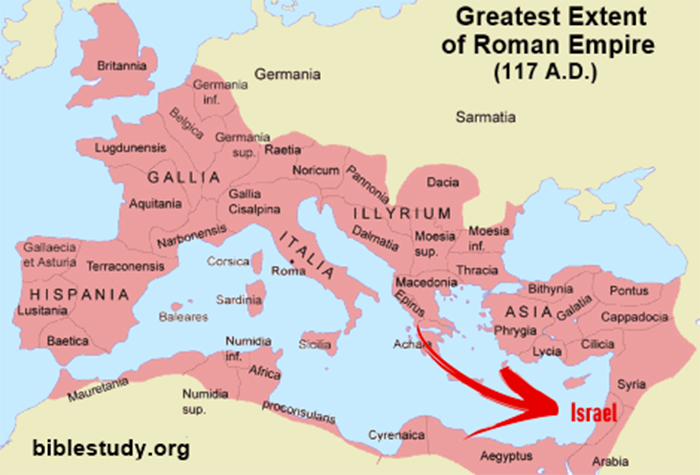
Interesting, I don’t remember anything about Ancient Rome from my public school teaching. But over 20 years ago wrote book Ancient History: Adam to Messiah with a 30+ lessons on Ancient Rome from what I learned, as a homeschool mom teaching it to my children (in the context of Bible history).
I teach an online course titled the 12 Bible Eras, following Bible history from Creation story in Mesopotamia through patriarchs journey to the Promised Land, slavery in Ancient Egypt, to Inter-testament period under Ancient Greece rule to the New Testament under the Roman Empire.
The entire New Testament account unfolded during the rule of Roman emperors. The life of the Jews, Jesus and the early church occurred under the Roman Empire. Paul’s missionary efforts were nearly entirely to the territory and cities of the Roman Empire.
At the end of the Old Testament, Israel had returned (see Return Era Class) from exile (see Exile Era Class), Jerusalem had been rebuilt, and the temple was working again.

In the 400 years between the testaments (see Silence Era Class), Alexander's Greek Empire flourished and eventually broke up. The Seleucids, a Syrian Greek Empire splinter state, persecuted Israel. Seleucid monarch Antiochus IV Epiphanes (“manifest god”) was harsh. He Hellenized Jews and profaned the temple. He incited the Maccabean uprising that banished the Greeks and gave Israel freedom (Hanukkah).
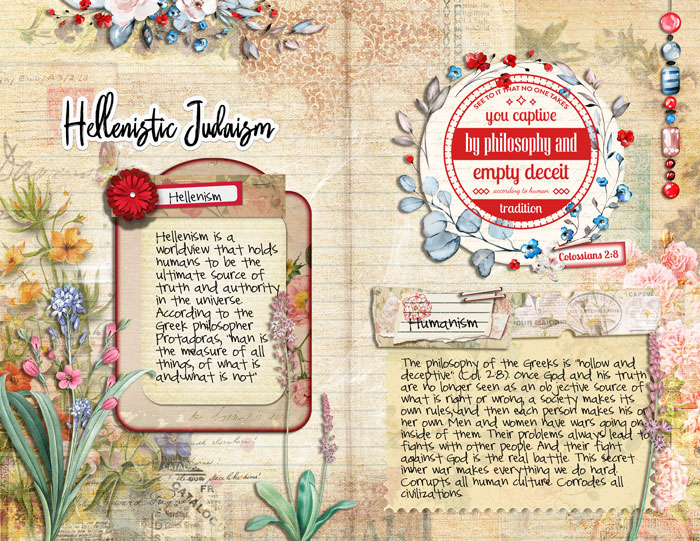
Rome expanded into an empire and swallowed Israel. As long as they didn't disturb Rome, Jews could follow their religion. Rome appointed puppet rulers (the Herods) and military governors (Pilate, Felix, Festus) to several Israeli regions.
Under Roman control, Jews were granted special status and legal rights. They were allowed to follow their faith and build synagogues. They were also excluded from military service and from appearing in court on the Sabbath.
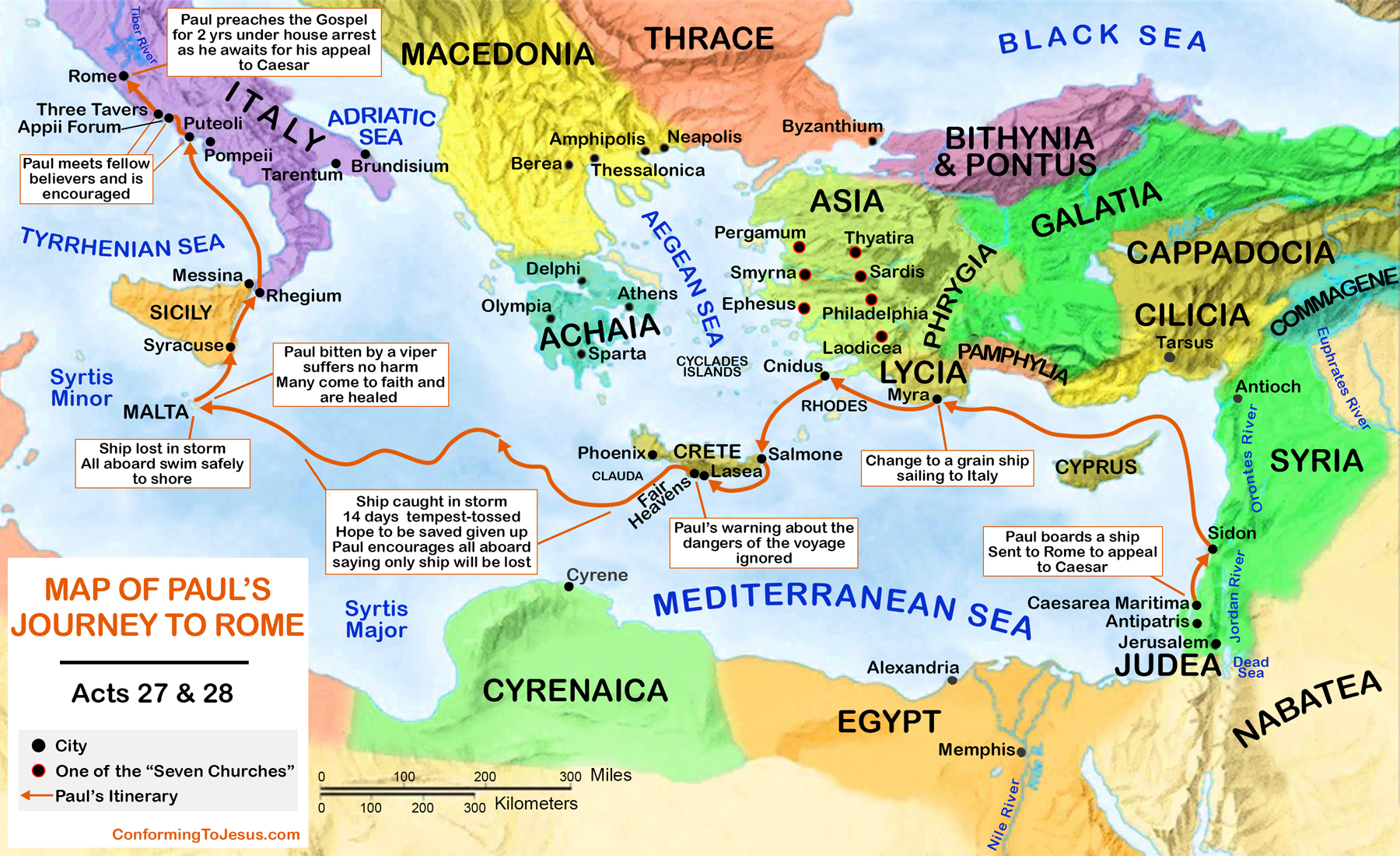
Christianity & The Roman Empire
Christianity was born and developed within the borders of the Roman Empire. Various emperors ruled the Roman Empire throughout the New Testament period.
- Christ was born during the reign of Augustus.
- Christ’s crucifixion took place under the reign of Tiberius.
- The martyrdom of James occurred during the reign of Emperor Claudius (Acts 11:28; 12:1-2).
- Paul addressed requests to Emperor Nero (Acts 25:11).
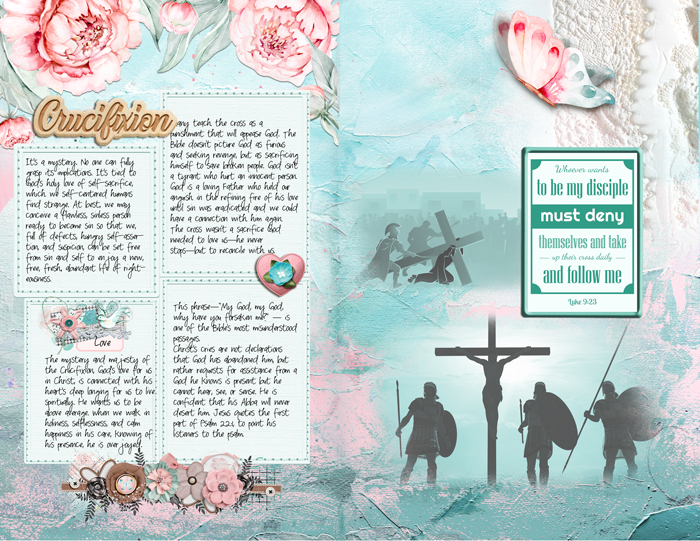
Rome initially regarded Christianity as a sect of Judaism. Many times, Roman authorities dismissed Jewish-Christian disputes as an internal matter unworthy of their concern (Acts 18:12-17). Rome even defended Christians against Jewish extremists (Acts 19-23) and guaranteed Paul the right to a fair trial.
Most Christians viewed Roman rule positively and respectfully. The were careful not to encourage revolutionary or traitorous acts. Jesus mentioned paying taxes (Mark 12:17). Paul exhorted his readers to respect, pray for, and honor rulers (Rom. 13:1-7; 1 Tim. 2:1-2; Titus 3:1). "Honor all people," Peter admonished the churches. I adore the brothers. Be afraid of God. "Respect the king" (1 Peter 2:17).
Paul's Journey's
The multi-ethnic church grew through missionary journeys across the ancient world. The Missions Era (mainly Paul's journeys) takes place in the Roman Empire. Paul went more ten thousand miles to preach the Gospel of Jesus Christ. His travels by land and sea mostly led him to modern-day Israel, Syria, Turkey, and Greece. The highways established by the Romans to facilitate their grip over their empire were used by Paul. Travelers went to the highways in as large a group as possible. There was always the threat of bandits. They rushed to the next roadside inn for shelter and whatever food was available.
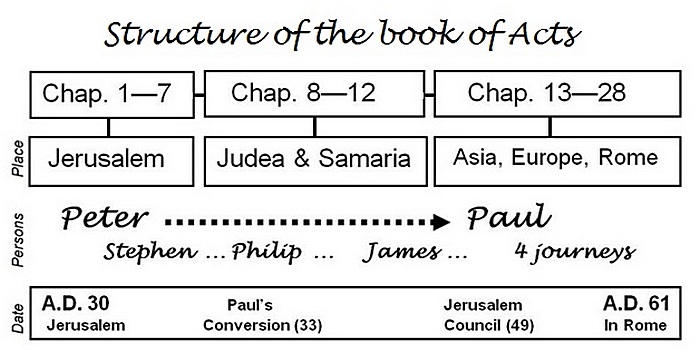
Christian Persecution
Under Nero, the Roman government perpetrated the first known persecution of Christians. Many Christians, including Paul, died during this period. Tacitus, a Roman historian, mentions large numbers of Christians being seized, tortured, crucified, and burned.
Marcus Aurelius officially condemned Christianity. As emperor, he was responsible for Justin Martyr's death (A.D. 165). Celsius (A.D. 249-251) persecuted Christians and, like Nero, used them as scapegoats for his own failings. For three years (A.D. 303-305), the church faced tremendous persecution under Diocletian. Several churches were destroyed. Christians were killed and Bibles were destroyed.
Christians were persecuted on the basis of their beliefs for decades, if not centuries, following Jesus' death and resurrection. Many Christians were martyred for failing to offer tribute and sacrifice to pagan gods on festival days or when questioned by Roman officials. Outsiders perceived the Christian cult's practices as cannibalistic, and its doctrinal beliefs in equality threatened pre-existing Roman hierarchical social norms, making the Christians an easy target or even scapegoat for emperors.
Constantine, the Roman Emperor from 306-337 CE, converted to Christianity in 312 CE and ended Christian persecution. Constantine issued the Edict of Milan in 313 A.D., declaring Christianity the official religion of the Roman Empire. During his reign, he built numerous magnificent churches while reducing the number of pagan temples. Despite this, Emperor Constantine was not a particularly devout Christian, as he continued to worship Sol Invictus, the sun god, throughout the majority of his reign.
We observe how Christians should behave in the world throughout the book of Acts. It illustrates how we are to live it out day by day. The early Christians recognized the significant distinction between attending church and being the church. They were aware of the scriptural requirements for church leaders. They recognized the critical importance of praying and serving together. They saw how vital it was (and still is) to obey the Lord, even if it meant waiting at a time when they felt compelled to act. They knew God's sovereignty transcends all human efforts, and they entirely trusted him.
Understanding the Culture of Bible Times
The apostle Paul writes in Galatians 4:4: "But when the time had fully come, God sent his Son, born of a woman, born under law, to redeem those under law, that we might receive the full rights of sons."
The word for "time" in this verse does not relate to a specific time, such as an hour or a day it is speaking to the full environment in which Christ was born. Jews had been fighting with the world's superpowers for hundreds of years and had a big effect on the way their country thought and felt.
Every Christian has a responsibility to learn about the world of the Bible. The gap between today's world and the world of the Bible causes modern readers to miss much of the literal and figurative significance.
In my book, A Family Guide to the Biblical Holidays, I use the analogy of light. Studying the Bible from our Western/American/Greek view is like looking for gold in a dark mine with a dim pen light—you can see enough to stumble around, but you need more light to see clearly. A good grasp of the ancient customs and terminology is a powerful floodlight that will allow you to examine God's Word with its intricate details and treasures.
The 12 Bible Eras Class restores clarity and energy to key passages of God's Word, assisting readers in grasping the entire meaning of Scripture. Understanding political culture, manners, and customs helps us correctly interpret the Bible.
What about you? How often to you think about the Roman Empire? Share your answer in the Bible Journaling Facebook Group.














